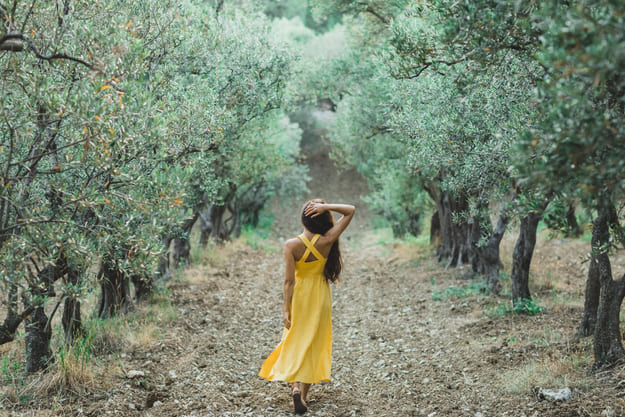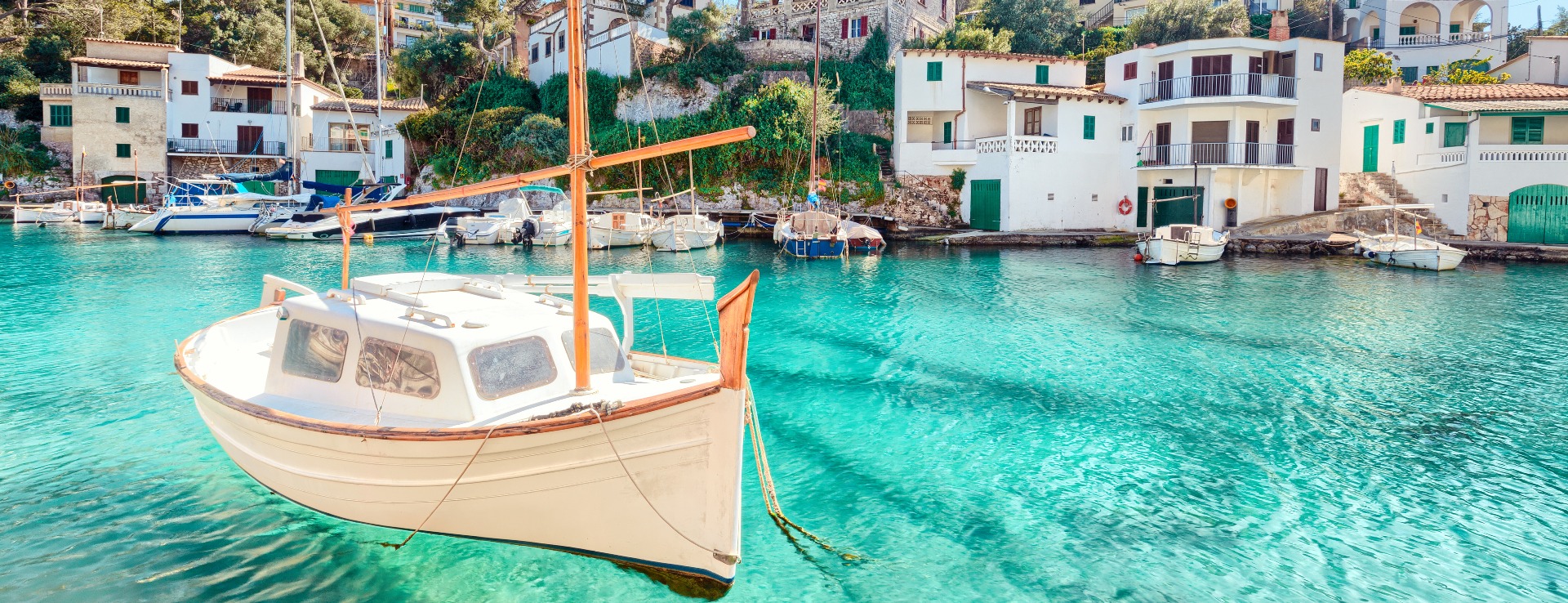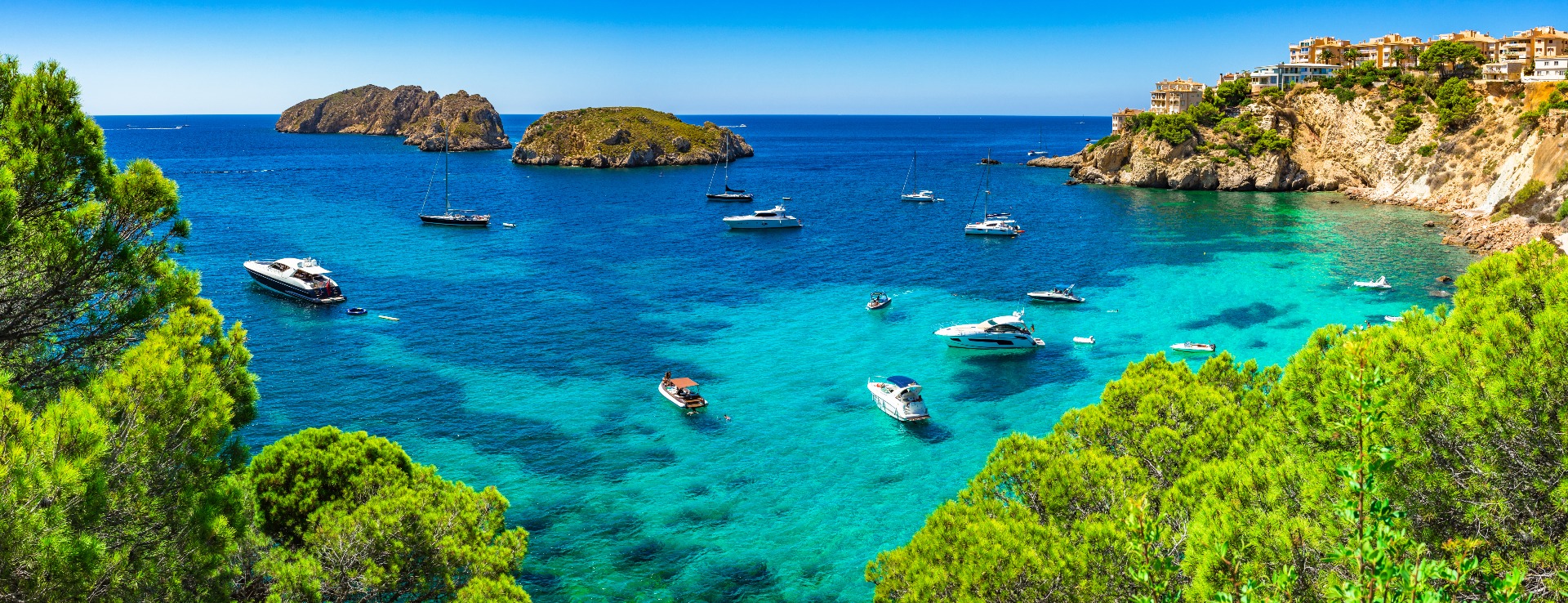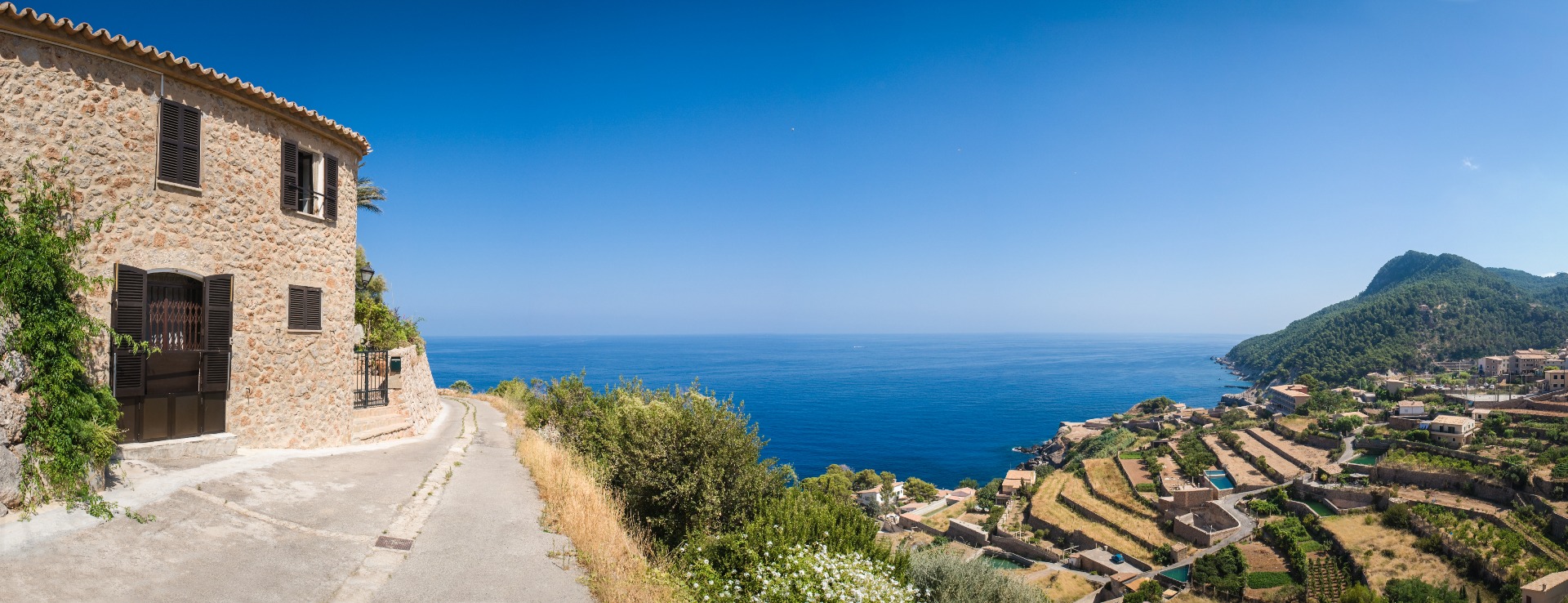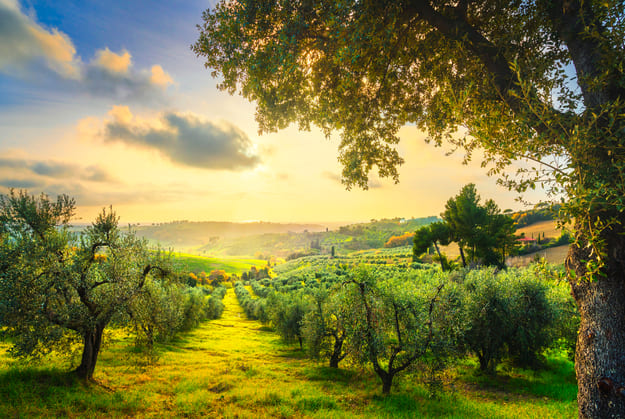Find your olive grove or oil mill
1 Olive groves and oil mills for sale in Mallorca
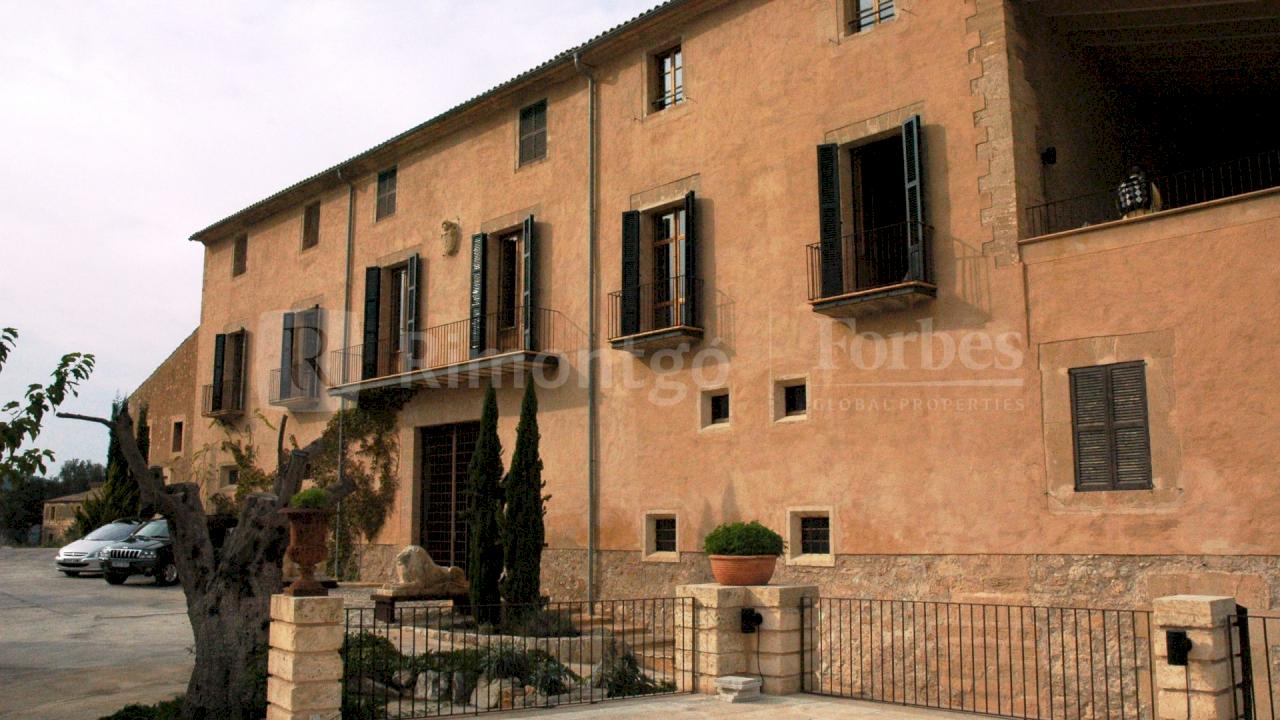
Magnificent rustic country house of Islamic origin with a pool and a game preserve in a privileged area of Mallorca.
Plot of 3,600,000 m² with 5,000 m² built (6 Bedrooms and 6 Bathrooms)
Infographic of the area
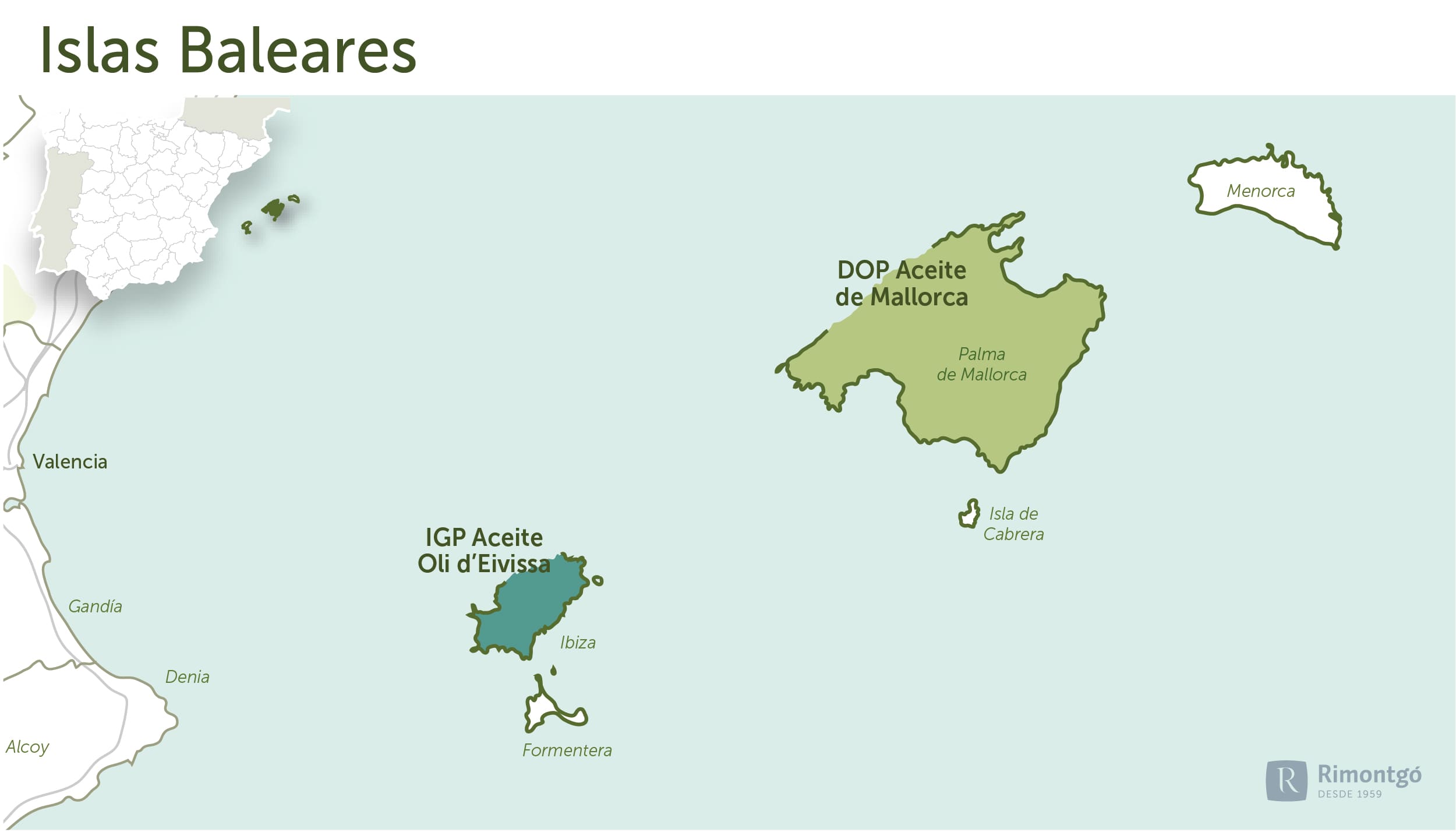
Mallorca
In Mallorca, the DOP Aceite de Mallorca stands out as the only protected designation of origin for olive trees in the province.
DOP Aceite de Mallorca
The production area is all the municipalities of the island of Mallorca, mostly mountain plantations located in very rugged terrain and located on terraces, typical Mallorcan constructions that allow the containment of the land and cultivation in steep areas.
The most emblematic olive-growing area in Mallorca is the Serra de Tramuntana, in the north of the island, as it forms a huge protective barrier against the Tramuntana winds. In Mallorca, the terraces with olive trees are one of the most emblematic and typical landscapes of the island.
The surface area of olive groves on the island is 2,204 ha.
Varieties
Being part of the Balearic Islands archipelago, located in the middle of the Mediterranean Sea, these oils are very different, both fruity and sweet, and are made with the native varieties Empeltre or Mallorquina, Arbequina and Picual.
The three varieties of olive authorised for the production of Mallorcan olive oil provide organoleptic and physico-chemical characteristics that complement each other and make it possible to obtain high-quality, differentiated oils. Thus, the Mallorcan olive gives the oil its smoothness, sweetness and ripe almond flavour; the arbequina variety gives the oil a green fruit flavour, while the picual variety gives it a spicy and bitter taste.
History
From a historical point of view, the cultivation of olive trees and the production and consumption of olive oil have a long tradition on the island of Mallorca.
There are references to olive cultivation and the production and export of olive oil since the 13th century, during the time of the Crown of Aragon. In the mid-15th century, Mallorcan olive oil was a product destined especially for the south of France. In the 16th century, there was an advance in the cultivation and production of oil, and a large number of estates had their own oil mills. This is why the age of the traditional plantations in the Serra de Tramuntana can be placed at around 500 years, we can affirm that 90% of the olive trees in Mallorca have an average age of 500 years The expansion of olive tree cultivation developed especially in the northern areas of Mallorca. During the 17th, 18th and 19th centuries, Mallorcan olive oil played a key role in the island's economy, both as a basic ingredient in the diet of the inhabitants and as a barter and export product.
Climate and soils
In general, the Serra de Tramuntana has steep, impracticable escarpments overlooking the sea and gentler slopes to the south. The terraces of the Serra face south and midday, on the one hand, taking advantage of the slopes and maximum sunshine and, on the other, avoiding the cold winds from the north, which allows olive cultivation to be carried out properly.
The agricultural soils of Mallorca are mainly limestone in nature, light reddish-brown in colour, with a medium to firm texture, with a high proportion of coarse elements, very poor in organic matter, with an alkaline pH and a high calcium carbonate content.
The characteristics of the soils, the rugged terrain, irregular rainfall and the high age of the Mallorcan olive trees mean that olive production is low. The age of the olive trees contributes to the differential characteristics of the oil produced in Mallorca, which are unique in comparison with other production areas.
It is common practice in Mallorca to grow olive trees and sheep at the same time. Sheep have the dual function of eliminating weeds and providing organic fertiliser, which gives the tree a nutritional balance.
Mallorca's climate is eminently Mediterranean, characterised by mild temperatures, mild winters and hot, dry summers. The average annual temperature is 17ºC. Rainfall is highest in autumn and lowest in summer, with an annual average of 570 mm. It is also worth mentioning the high level of environmental humidity that prevails on the island. Humidity is a very positive factor, although rainfall is scarce in Mallorca, the high level of humidity gives the olive trees a better adaptation to periods of drought.
Olive oil mills
Agroturismo Roqueta, SL, AUBOCASSA, Cala Murta, Es Verger, Finca Es Fangar, Guillem Mateu Estrany, Inversiones Pelicano 1003, Oli Jornets, Oli Novembre, SL, Oli Solivella, Olis Soller, Picarandau , Rafel Pons Martínez, S'oliera Son Catiu, Son Moragues 1921, Unipersonal, Tafona de Son Cuixa, SL, Treurer.
Olives
Subscribe to our mailing list to receive news about olive groves and oil mills.
